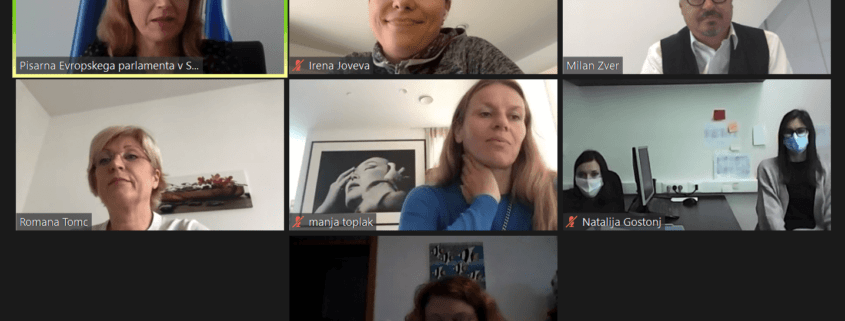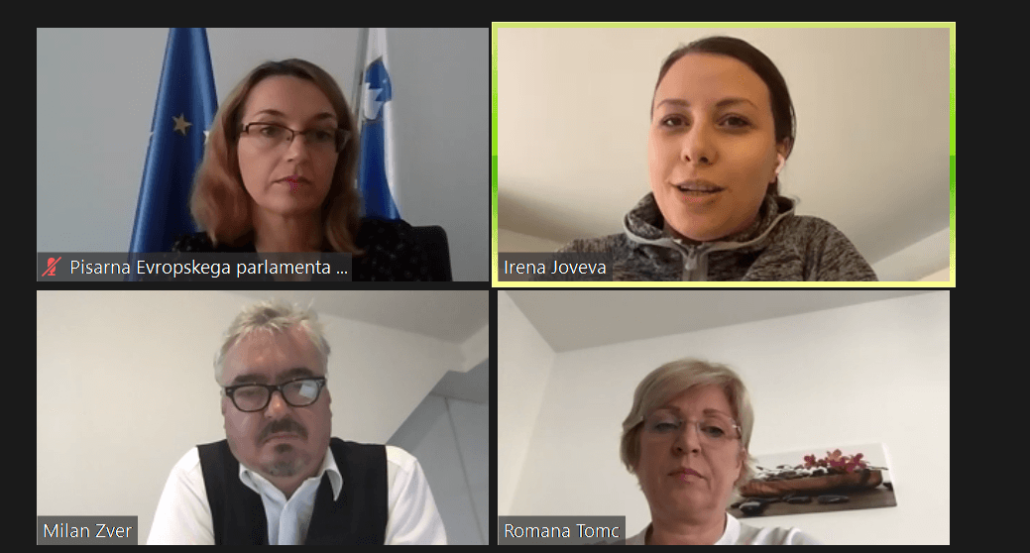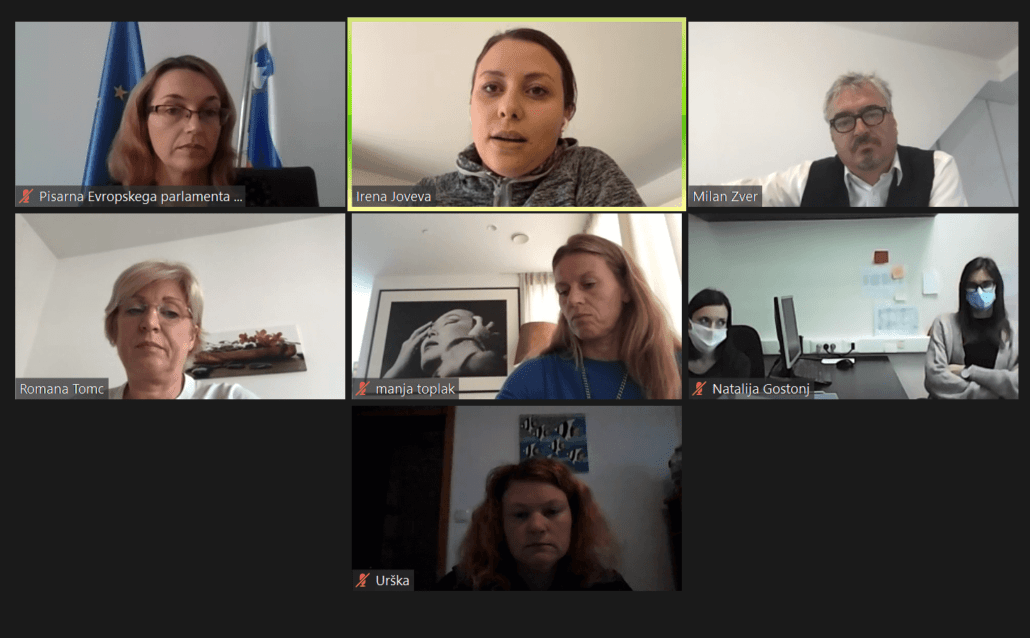On Friday, 16 October 2020, before the second plenary session of the European Parliament in October an online interview with journalists took place focusing on the reform of the Common European Agricultural Policy and the debate and vote on Parliament’s proposals on the content of the Digital Services Act and rules on artificial intelligence.
MEP Irena Joveva pointed out that attention will be paid to the digital agenda. For a long time, there have been calls for the Union to become digitally sovereign, thus catching up with China and the United States. The Digital Services Act (DSA) will address many pressing issues the Union and society are facing in the increasingly digital environment. “At the plenary session, we will adopt the legislative initiative report (INL), which is not legislative per se, but will have significant political implications. From this document, the Commission will follow the proposals supported by the majority support of the European Parliament,” said Joveva. She continued they will adopt three separate reports: the Committee on Internal Market and Consumer Protection (IMCO), the Committee on Legal Affairs (JURI) and the Committee on Civil Liberties, Justice and Home Affairs (LIBE). Irena Joveva was shadow rapporteur on all three opinions within the Committee on Culture and Education (CULT).
She spoke about the plans of the Commission, which is expected to issue its legislative proposal in early December.
“It is expected that the essential emphasis will be ‘ex ante’ rules preventing large internet corporations from becoming so-called ‘gatekeepers’, arbitrarily preventing access to smaller competitors in the market. Essentially providing the necessary conditions for smaller companies to compete with technological giants.”
According to Joveva, graver importance carries the monopoly over human relationships and data: “There used to be a saying ‘tell me whom you hang out with, and I’ll tell you who you are’; but today it’s ‘show me your “feed”, and I’ll tell you who you are.” The DSA will be a response to happenings related to the algorithms of user activities, which takes place mainly on social networks. Within the DSA we are trying to regulate the area of transparency of these algorithms, such as labelling (political) advertising according to the origin and payment of online publication, labelling and removal of controversial or misleading information, moderation of content online. While keeping an appropriate level of freedom of speech, freedom of reporting and respecting the rights of individuals as well as their privacy. “The key is to identify the difference between illegal content, such as child pornography or terrorism, and harmful content. Platforms will be obliged to remove illegal content immediately, while clear rules of procedure will be set for harmful content.”
In conclusion, MEP Joveva said that many questions remain open, such as how to track down people who uploaded illegal or harmful content to online platforms. She adds that the Parliament and the Committees have taken a step in the right direction in regulating the daily changing digital environment.






Leave a Reply
Want to join the discussion?Feel free to contribute!